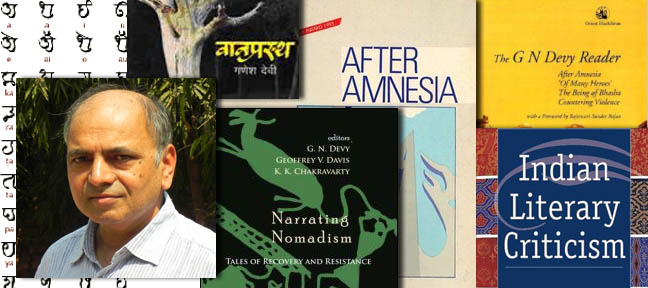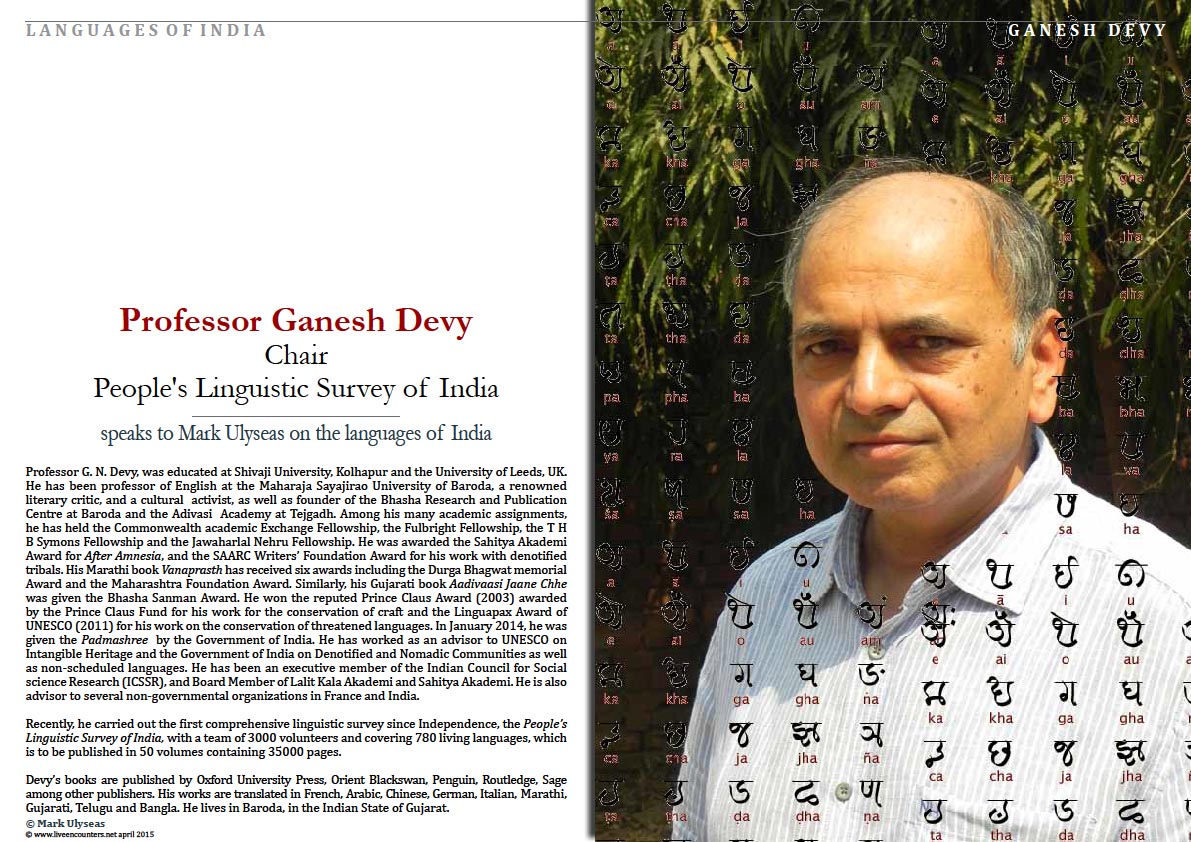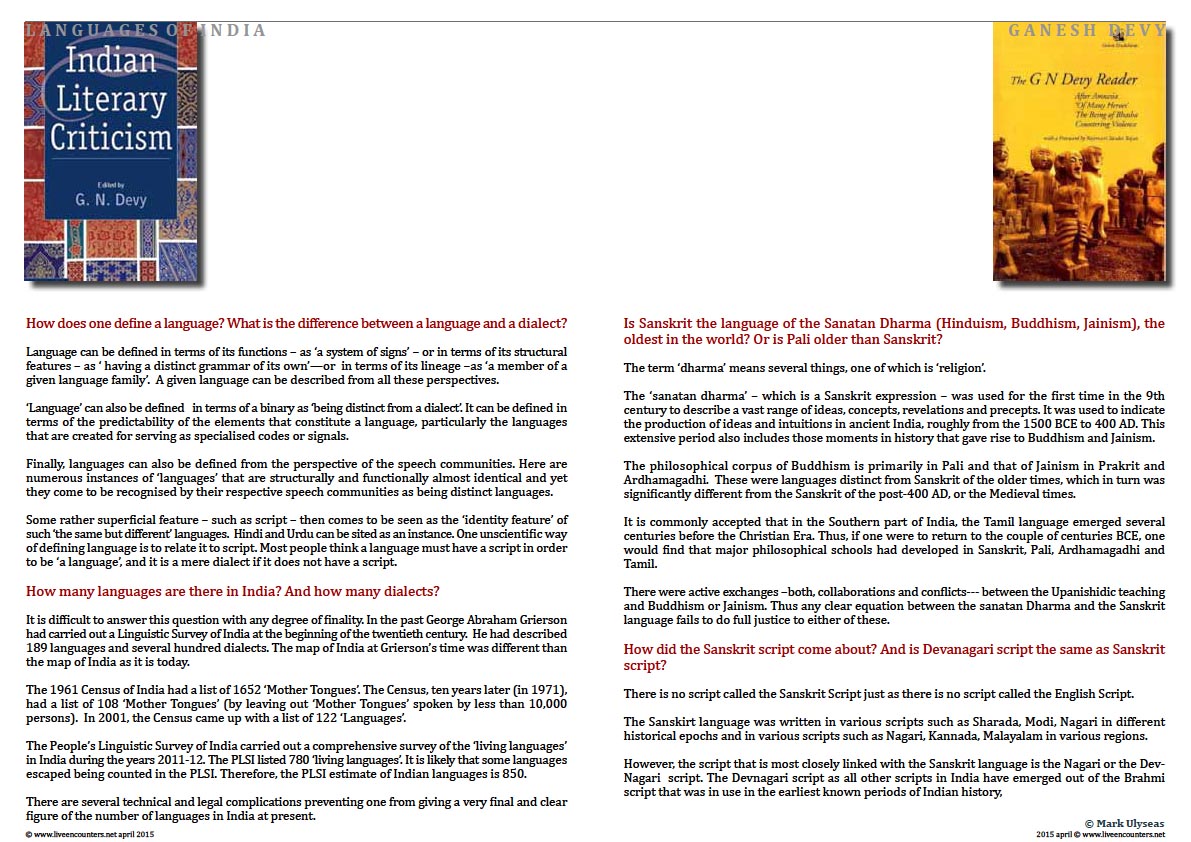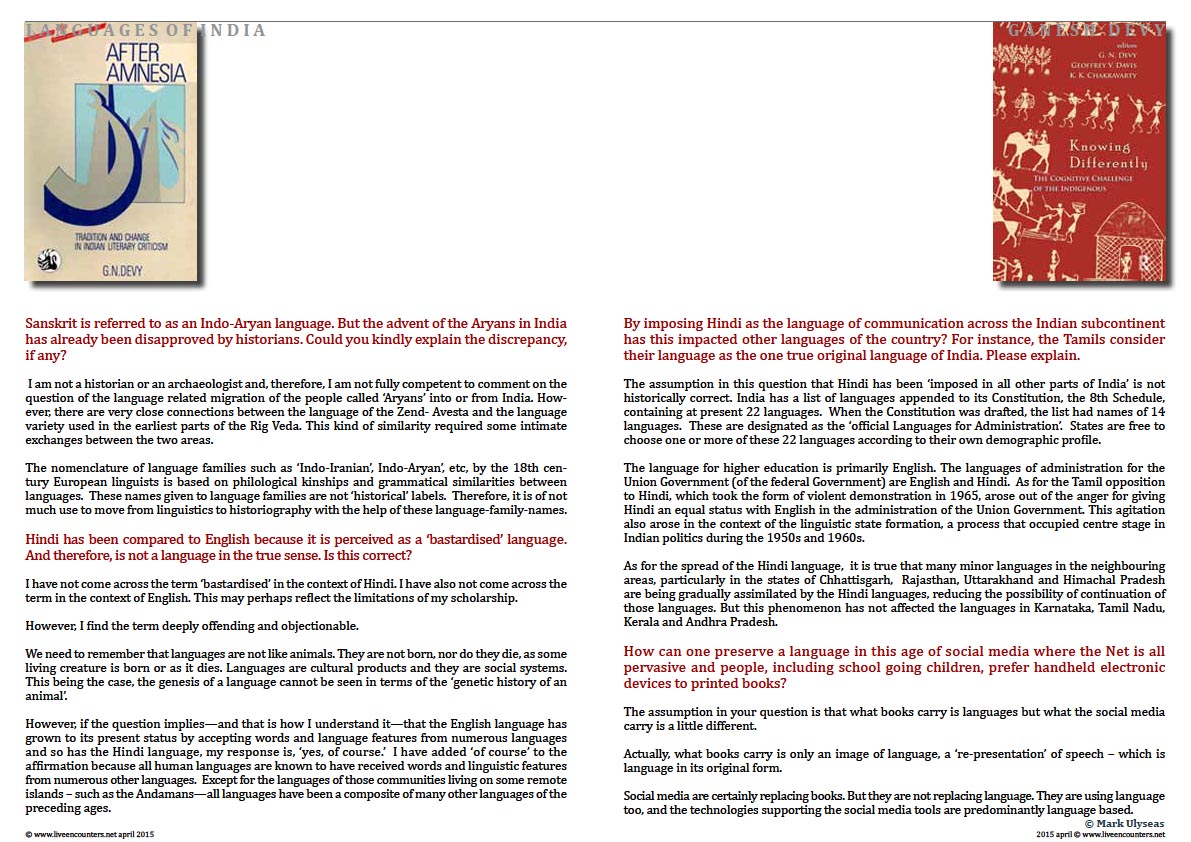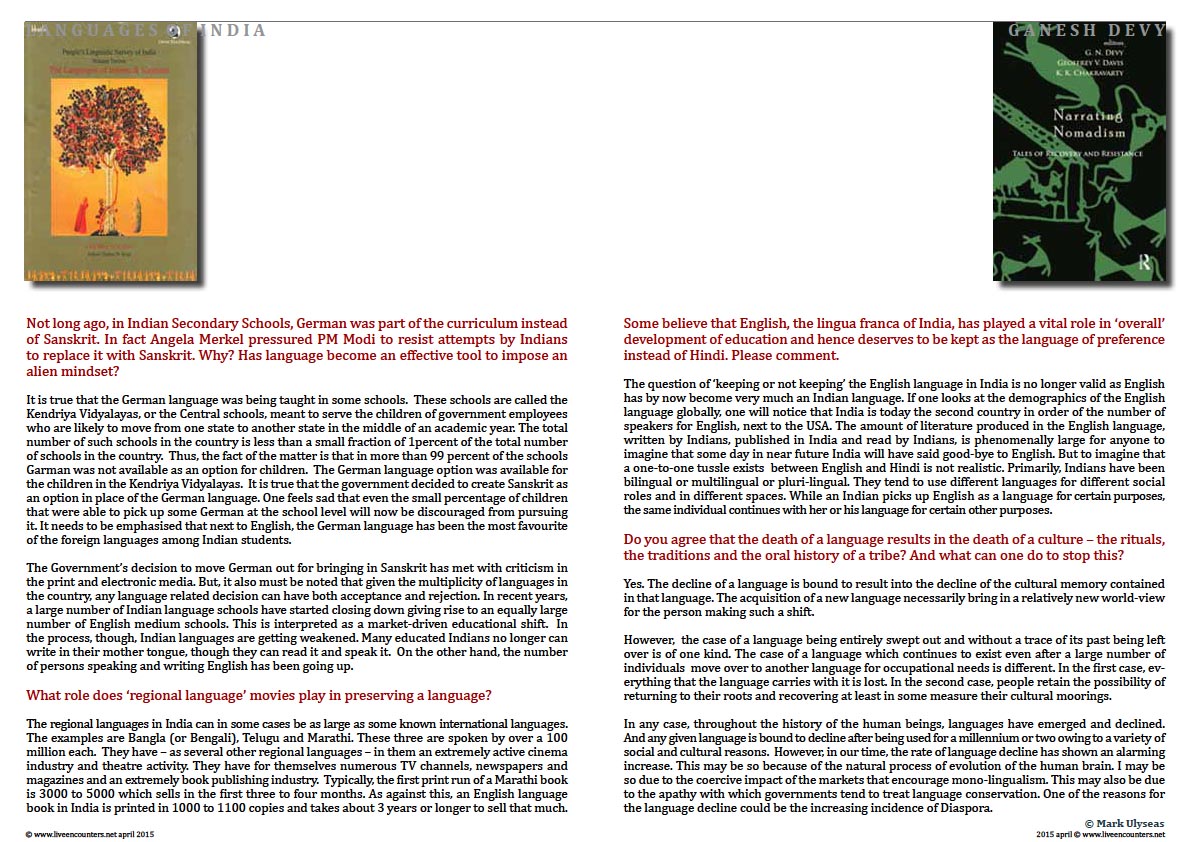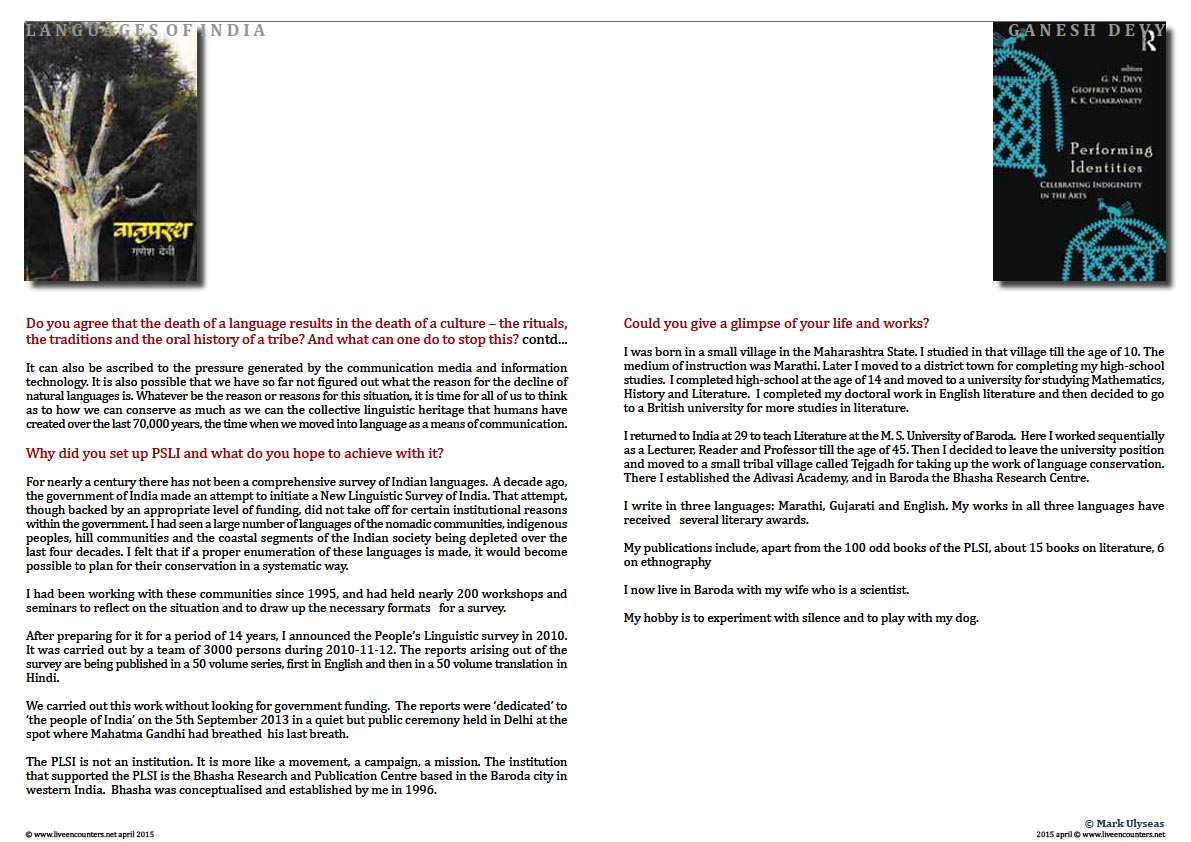Article in PDF (Download)
Professor Ganesh Devy, Chair, People’s Linguistic Survey of India speaks to Mark Ulyseas on the languages of India
For nearly a century there has not been a comprehensive survey of Indian languages. A decade ago, the government of India made an attempt to initiate a New Linguistic Survey of India. That attempt, though backed by an appropriate level of funding, did not take off for certain institutional reasons within the government. I had seen a large number of languages of the nomadic communities, indigenous peoples, hill communities and the coastal segments of the Indian society being depleted over the last four decades. I felt that if a proper enumeration of these languages is made, it would become possible to plan for their conservation in a systematic way.
I had been working with these communities since 1995, and had held nearly 200 workshops and seminars to reflect on the situation and to draw up the necessary formats for a survey.
After preparing for it for a period of 14 years, I announced the People’s Linguistic survey in 2010. It was carried out by a team of 3000 persons during 2010-11-12. The reports arising out of the survey are being published in a 50 volume series, first in English and then in a 50 volume translation in Hindi.
We carried out this work without looking for government funding. The reports were ‘dedicated’ to ‘the people of India’ on the 5th September 2013 in a quiet but public ceremony held in Delhi at the spot where Mahatma Gandhi had breathed his last breath.
The PLSI is not an institution. It is more like a movement, a campaign, a mission. The institution that supported the PLSI is the Bhasha Research and Publication Centre based in the Baroda city in western India. Bhasha was conceptualised and established by me in 1996.
Professor G. N. Devy, was educated at Shivaji University, Kolhapur and the University of Leeds, UK. He has been professor of English at the Maharaja Sayajirao University of Baroda, a renowned literary critic, and a cultural activist, as well as founder of the Bhasha Research and Publication Centre at Baroda and the Adivasi Academy at Tejgadh. Among his many academic assignments, he has held the Commonwealth academic Exchange Fellowship, the Fulbright Fellowship, the T H B Symons Fellowship and the Jawaharlal Nehru Fellowship. He was awarded the Sahitya Akademi Award for After Amnesia, and the SAARC Writers’ Foundation Award for his work with denotified tribals. His Marathi book Vanaprasth has received six awards including the Durga Bhagwat memorial Award and the Maharashtra Foundation Award. Similarly, his Gujarati book Aadivaasi Jaane Chhe was given the Bhasha Sanman Award. He won the reputed Prince Claus Award (2003) awarded by the Prince Claus Fund for his work for the conservation of craft and the Linguapax Award of UNESCO (2011) for his work on the conservation of threatened languages. In January 2014, he was given the Padmashree by the Government of India. He has worked as an advisor to UNESCO on Intangible Heritage and the Government of India on Denotified and Nomadic Communities as well as non-scheduled languages. He has been an executive member of the Indian Council for Social science Research (ICSSR), and Board Member of Lalit Kala Akademi and Sahitya Akademi. He is also advisor to several non-governmental organizations in France and India. Recently, he carried out the first comprehensive linguistic survey since Independence, the People’s Linguistic Survey of India, with a team of 3000 volunteers and covering 780 living languages, which is to be published in 50 volumes containing 35000 pages. Devy’s books are published by Oxford University Press, Orient Blackswan, Penguin, Routledge, Sage among other publishers. His works are translated in French, Arabic, Chinese, German, Italian, Marathi, Gujarati, Telugu and Bangla. He lives in Baroda.


